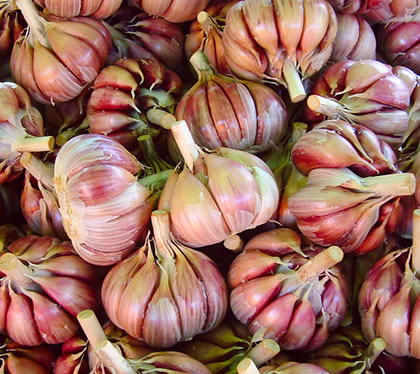There is a myriad of wonderful herbs and spices that we often overlook as actual health-boosting additions to our foods. Our common herbs such as cilantro, basil, thyme, green onions, ginger, turmeric, oregano, in fact, offer immeasurable health benefits by virtue of their powerful phytochemical and antioxidant properties! Antioxidants (such as Vitamin C, A, E and minerals such as copper, zinc, selenium) help combat the so-called free-radicals (rogue molecule products of metabolism), which are linked to degenerative diseases, including cancer, as well as the aging process.
Who would have guessed?
Herbs and spices have been found to reduce inflammation, protect against infection, help to detoxify the liver and cleanse the lungs and other organs; they also help prevent the cell damage that can lead to rheumatoid arthritis, osteoporosis, heart disease, atherosclerosis, among other degenerative diseases.
The National Institute on Aging in Baltimore, Maryland uses the Oxygen Radical Absorbance Capacity (ORAC) scale to establish the antioxidant levels contained in foods. It turns out that herbs and spices have a higher ORAC level (more antioxidants) than even most fruits and vegetables. For example, one teaspoon of oregano has almost 4 times more antioxidant capability than 1/2 cup of red grapes, while one teaspoon of cinammon is even higher at 7 times.
Garlic: the Gateway Herb
To anchor ourselves in the use of fresh and dried herbs, we can start with the spice / herb of herbs – GARLIC. The main reason is that garlic is one of the most powerful of herbs for its many health benefits and, particularly, because it has a proven track record of preventing and treating many diseases and infections, boosting the action of the immune system, combating heart disease and some types of cancer. Once we start adding garlic to our food on a daily or weekly basis, we establish a healthy habit, that can lead to the regular and consistent use of other herbs; perhaps combining garlic with onions and oregano, or garlic with basil and turmeric or thyme, and so on.
Common Spices and Herbs and their Nutritional/Medicinal Values
Here are just a few common herbs and spices that we can use in our cooking and salads, and the health benefits that they can offer:
Ginger: antioxidant, anti-inflammatory, anti-tumor, helps eliminate intestinal gas, helps reduce dizziness, nausea, vomiting associated with motion sickness and during pregnancy.
Cilantro: anti-viral, anti-bacterial; good for detoxification of the body from heavy metals such as mercury, lead, and aluminum, helps lower blood sugar, protects against urinary tract infection, good for the digestive system.
Basil: anti-inflammatory, beta-carotene-rich to protect against free-radical damage of cells, including blood vessel lining, also contains Vitamin C, magnesium, potassium and calcium.
Thyme: disinfectant, good for lung and respiratory conditions such as bronchitis and asthma, acts as an antioxidant, good source of calcium, manganese and iron; has one of the highest polyphenol contents of common herbs and spices (polyphenols help block inflammation).
Green Onions: help loosen phlegm from the lungs, stimulate appetite, help protect against colon cancer.
Turmeric: anti-inflammatory, helps detoxify the liver, disinfectant, anti-bacterial, digestive aid, helps with weight loss.
Oregano: anti-bacterial, anti-fungal, anti-parasitic, good source of iron, manganese, calcium, Vitamin C, Vitamin A, as well as Omega 3 fatty acids; has one of the highest polyphenol contents of common herbs and spices (polyphenols help block inflammation in the body).
Start with Garlic!
Certainly, good nutrition plays a major role in keeping us healthy and resistant to illness. The body is dependant for life on the proteins, vitamins and minerals and water that we provide it to function normally, maintain proper metabolism and remove wastes. Herbs and spices can serve as a powerful additional source of protection to our health. Start with garlic as a foundation herb. And, be diligent in using fresh and dried herbs and spices to increase the nutritive and medicinal value of what you eat!
